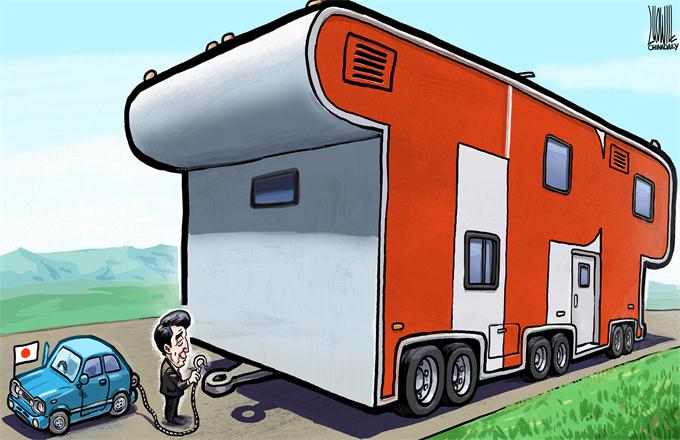Establishing green routes for growth
There was a time not long ago when most big social and economic challenges were domestic. With good policies and good implementation of those policies, many countries could tackle these problems alone. China's recent success in lifting millions of people out of poverty is a perfect example of this.
But today, our challenges are not only domestic, and they are not only social and economic.
Climate change, pollution, and the loss of biodiversity are environmental issues that spill over borders.
And today, issues such as poverty, inequality, peace and security are not only problems facing individual countries.
These are global challenges. They must be tackled collectively.
A number of countries are leading the way in fostering international cooperation. China, with its Belt and Road Initiative, is one of them.
Evidence of this can be seen in Ethiopia, where China has helped to build a metro system in Addis Ababa, and in Kenya, where a standard gauge railway is being built to link the port of Mombasa first with Nairobi, and ultimately with neighboring Uganda, Rwanda, and South Sudan. In recent years, Chinese companies have also led renewable energy projects in places such as Pakistan, Thailand and the Philippines.
Such massive investment in development is on a scale never before seen. And there is great progress to be made on security, economic and social challenges.
But we cannot forget the other global challenge that we must face together: protecting the environment.
UN Environment also recognizes the potential of the Belt and Road initiative to improve people's lives. We also know how important it is to do this sustainably.
If we do not make Belt and Road projects climate friendly, we put the world at risk from worsening pollution and severe climate change. If done right, millions will see the benefits of green growth.
Now is the time to do it right and make Belt and Road as green as possible.
That is why UN Environment signed an agreement with the Chinese Ministry of Environmental Protection in December to promote the sustainable development of the Belt and Road.
There are many ways we will support this. Our environmental expertise runs from sustainable finance and clean technologies to ecosystems and sustainable consumption and production. UN Environment can support technology transfer and the creating of green economy policies. Through our Finance Initiative, we can work with private investors to promote sustainable investment practices along the Belt and Road.
But we cannot do it alone. Many other stakeholder groups, investors, and businesses have valuable expertise to bring to the table. And many Belt and Road countries have asked specifically for such support to make sure that the Belt and Road Initiative helps them meet their sustainable development needs.
And so, at the Belt and Road Forum for International Cooperation in Beijing this week, UN Environment and China's Ministry of Environmental Protection will announce the International Coalition for Green Development on the Belt and Road.
UN Environment and China will bring together dozens of partner organizations in this coalition. We want to draw knowledge from the largest body of environmental expertise possible to ensure that Belt and Road brings long-term, planet-friendly growth.
The forum this week will bring together a significant portion of that expertise. I see it as the beginning of a close collaboration and hope to grow our coalition. We all want the Belt and Road Initiative to fulfil its promise as a positive force for development. We must work together to ensure that development is sustainable.
The author is head of UN Environment.


















